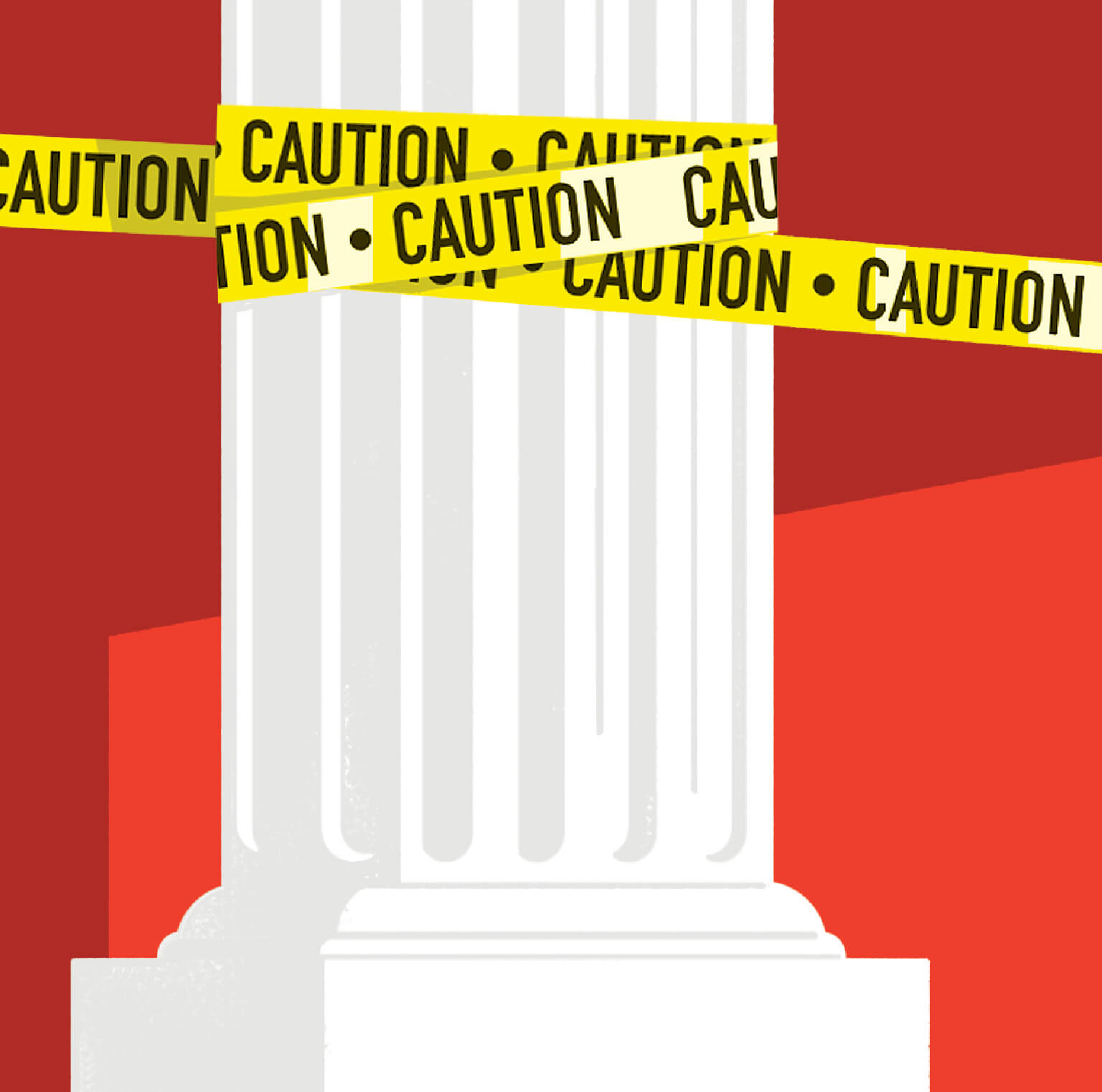Your Money: Fraud Watch
BANKING MADE SAFER
New state laws seek to protect you from scams
BY CHRISTINA IANZITO
ILLUSTRATION BY CHRIS GASH

Leslie Fumega, 79, got a call last year from someone claiming to be with the local police and the FBI. Her identity had been stolen and her accounts were in jeopardy, he told her. To protect herself, a man claiming to be an FBI agent said, she needed to pull cash from her bank in increments of $10,000 to $20,000 and mail it to a secure location.
Over the next six weeks, Fumega withdrew a total of $165,000 from different branches of her bank and mailed it to addresses supplied by the “agent.” When she finally revealed what was happening to her daughters, they convinced her that she was the victim of an elaborate scam. They were right. Her savings were gone.
In an ideal world, the bank would have had a way to flag the unusual transactions and intervene in some way—maybe even freeze them until they could confirm that Fumega’s withdrawals were for legitimate purposes. Banks, however, are generally unable to stop authorized transactions like Fumega’s without facing a potential lawsuit from the customer.
But new laws are attempting to change that. Known as “report and hold” laws, they give banks the option of holding a suspicious transaction.
Such a statute will take effect in Florida on January 1. It allows a bank to temporarily delay a transaction linked to the suspected exploitation of an adult 65 or older, as well as certain other protected account holders—Floridians who “are at a statistically higher risk” of being exploited, the law says.
“We had reports of banks that were unable to stop or delay a money transfer even if they were notified by law enforcement that the money was going to a scammer, unless they got a court order—which takes time,” says Karen Murillo, advocacy manager for AARP Florida, which championed the legislation. “It includes the provision that if banks use this law in good faith, and comply with statutory requirements, they should not be civilly liable.”
To conduct a delay, a bank must notify the account holder and a listed contact of the reason for the delay, as well as conduct an internal investigation into the suspected exploitation. If the bank determines the account holder is no longer at risk of exploitation, it can lift the delay and allow the transaction to proceed. Murillo points out that the new law highlights how listing a trusted contact on your account can help protect your money.
Banks are required by federal law to report cases of financial exploitation, but there’s still no federal rule or law authorizing banks to intervene when they identify potential scams in progress.
That has led states such as Minnesota, Connecticut and New Hampshire, plus a dozen or so others, to pass their own laws. There are variations among those statutes, but they generally allow banks and other financial institutions to temporarily delay an eligible person’s transactions if they believe that the person is being exploited.
Some financial fraud experts are taking a wait-and-see approach to new laws like Florida’s. Prentiss Cox, a professor specializing in consumer protection law at the University of Minnesota Law School and consultant for AARP, notes that the laws allow banks to hold up suspicious transactions but don’t require it. California passed a report-and-hold law that says that if a financial institution reasonably suspects that financial abuse is involved in a transaction, it could be liable for not pausing it. But Gov. Gavin Newsom has vetoed it.
Bank employees need to be able to recognize the sometimes subtle red flags that signal financial exploitation, particularly when scam victims insist a transaction is legitimate, says Mark Solomon, international president of the International Association of Financial Crime investigators. “The victim is usually not cooperative,” he says. “It’s very hard, once they’re in the middle of that scam, to convince them that they’re being victimized.” Part of the answer is educating bank employees who deal with the public. AARP’s BankSafe initiative offers an online training program that teaches employees how to spot such signs of exploitation. BankSafe-trained financial organizations have prevented more than $300 million from being stolen from consumers.
The new state laws have critics. “We recognize that these laws are well-intentioned,” says Paul Benda, the American Bankers Association’s executive vice president for risk, fraud and cybersecurity. “But there are many potential challenges,” including the concern that some people could be taken advantage of by a dishonest “trusted contact.
Financial experts say giving banks more responsibility for limiting financial fraud is not a simple process. The new state laws are a beginning, not the end, Cox says. “But that’s a good first step.”
How to Keep From Being Defrauded
▶︎ Find out if your bank allows you to name a trusted contact who could be called if the employees are concerned that you’re a victim of financial exploitation.
▶︎ Avoid unsolicited communications. Don’t answer calls or texts from unknown numbers.
▶︎ Be suspicious of anyone who tells you to keep a conversation secret. That’s a huge red flag that you’re dealing with a scammer.
▶︎ You can report suspected financial scams to the FBI at IC3.gov.
Have questions related to scams? Call the AARP Fraud Watch Network Helpline toll-free at 877-908-3360. For the latest fraud news and advice, go to aarp.org/fraudwatchnetwork.